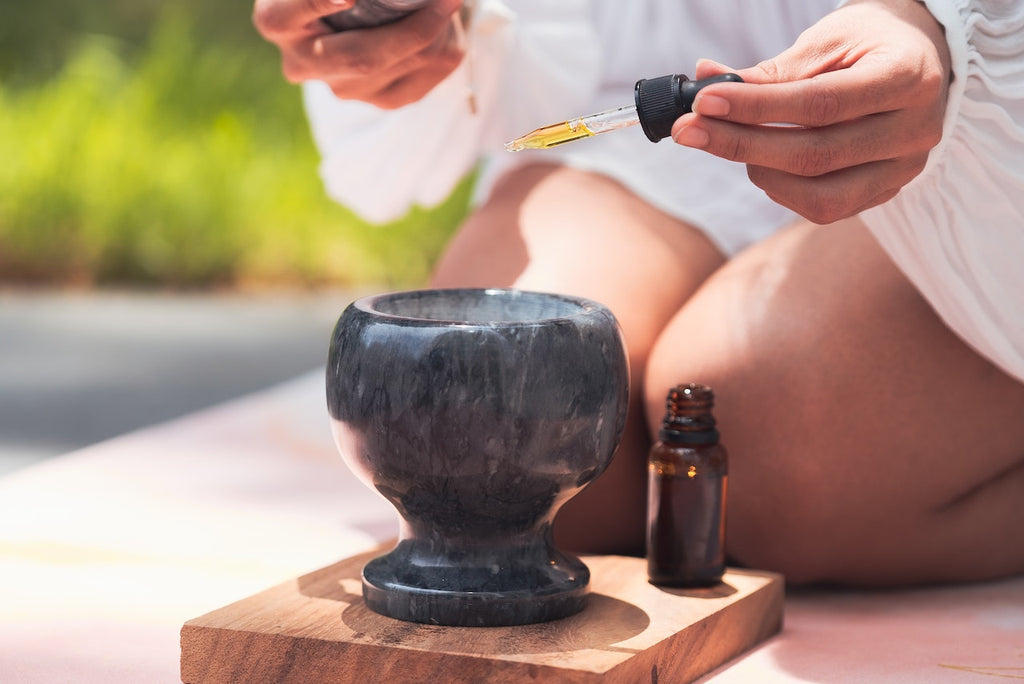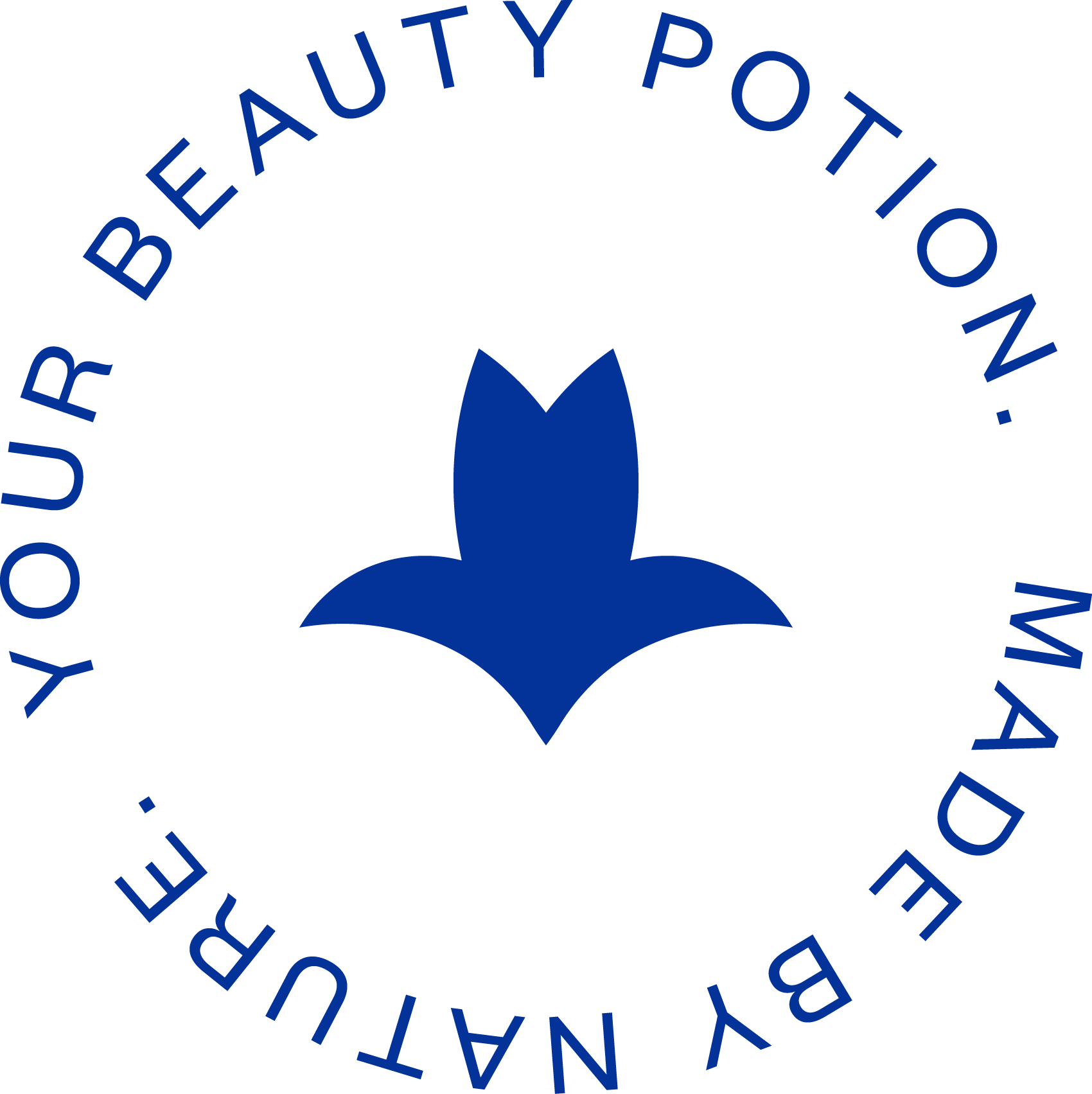Facial oils have become a cornerstone in advanced skincare regimens, offering a lot of benefits backed by scientific research. From enhancing skin barrier function to providing anti-inflammatory and antioxidant properties, incorporating the right facial oils can significantly improve skin health and appearance.
When choosing an oil for skin care, the quality of oils, the method of oil processing and refinement are crucial. Cold pressing is the ideal method of oil extraction because the chemical- and heat-free procedure maintains essential lipids and reduces irritant byproducts.
1. Understanding Facial Oils: Composition and Function
Facial oils are lipid-based formulations designed to complement the skin's natural oils. They primarily consist of:
Carrier Oils: Derived from nuts, seeds, or fruits (e.g., jojoba, argan, sunflower), these oils are rich in essential fatty acids and serve as the base for facial oils.
Essential Oils: Concentrated extracts from plants that provide aromatic and therapeutic properties. These should always be diluted due to their potency.
Active Compounds: Components like vitamins, antioxidants, and anti-inflammatory agents that target specific skin concerns.
The molecular structure of these oils allows them to create a barrier on the skin's surface, reducing water loss and locking in moisture. This is particularly beneficial for individuals with dry or dehydrated skin, as oils help restore and maintain the skin's natural moisture balance.
2. The Science Behind Facial Oils: Skin Barrier Enhancement
The skin barrier, primarily composed of lipids, plays a crucial role in maintaining hydration and protecting against environmental aggressors. Disruption of this barrier can lead to dryness, irritation, and increased sensitivity.
Plant oils have been shown to aid in skin barrier repair:
Safflower Seed Oil: Rich in linoleic acid, it has been demonstrated to improve skin barrier function and hydration without causing irritation.
Jojoba Oil: Mimics the skin's natural sebum, making it effective in restoring skin barrier integrity.
However, it's essential to choose oils with a higher linoleic acid to oleic acid ratio, as oleic acid can disrupt the skin barrier when used in high concentrations.
The benefits of natural oils for barrier restoration are mostly determined by the different essential fatty acid ratios present in them. While oils with higher concentrations of oleic acid may be harmful to the function of the skin barrier, oils with a higher linoleic acid to oleic acid ratio have a better potential for barrier healing.
Read more on Revitalizing the skin: Exploring the role of barrier repair moisturizers
3. Anti-Inflammatory and Antioxidant Properties
Many facial oils also contain antioxidants, which help protect the skin from free radical damage, as well as essential fatty acids, which help repair damaged skin cells. Facial oils are particularly useful for those with dry or sensitive skin, as they provide a layer of nourishing protection. Additionally, facial oils provide a luxurious and relaxing experience when used in a facial massage.
Many facial oils possess anti-inflammatory and antioxidant properties, which are vital in combating skin aging and inflammatory conditions:
Rosemary Extract: Contains high levels of vitamin E and linoleic acid, offering antioxidant protection and anti-inflammatory benefits.
Sea Buckthorn Oil: Rich in vitamins C and E, it supports skin regeneration and reduces inflammation.
These properties help in neutralizing free radicals, reducing oxidative stress, and calming irritated skin.
4. How to Use Facial Oils for Maximum Results
Facial oils are applied in a few drops to the face and massaged as a moisturizer. Certain oils can take a long time to penetrate the top layers of the skin, so it’s worth researching the ones that are best suited for your skin.
The key to unlocking the full benefits of facial oils lies in how and when you use them.
Application Tips:
- Apply after water-based serums and before your moisturizer (or instead of it, if your skin is oily or combination)
- Warm 2–4 drops in your hands and press into slightly damp skin
- For best results, use facial oils twice daily—lighter oils in the morning, richer oils at night
Facial oils are also an ideal medium for facial massage using tools like gua sha or jade rollers. This not only boosts circulation but helps with lymphatic drainage and product absorption.
Dry oils such as rosehip, safflower, jojoba etc. absorb very quickly, while grapeseed oil or avocado oil can take longer.
5. Targeted Treatment for Specific Skin Concerns
Facial oils can be tailored to address various skin issues:
- Acne-Prone Skin: Oils high in linoleic acid, such as safflower and grapeseed oils, can help balance sebum production and reduce acne lesions.
- Aging Skin: Oils rich in antioxidants, like rosehip and pomegranate seed oils, promote collagen production and reduce the appearance of fine lines.
- Sensitive Skin: Chamomile and calendula oils offer soothing properties, reducing redness and irritation.
Selecting the appropriate oil based on your skin type and concerns can lead to significant improvements in skin health.
6. Application Techniques for Optimal Results
To maximize the benefits of facial oils:
- Cleanse: Start with a clean face to ensure better absorption.
- Tone: Apply a toner to balance the skin's pH.
- Serum: Use any water-based serums before oil application.
- Facial Oil: Apply 2-3 drops of oil, warming it between your palms, and gently press into the skin.
- Moisturizer: If needed, follow with a moisturizer to lock in all the products.
Using facial oils both in the morning and evening can provide continuous nourishment and protection.
7. Quality and Extraction Methods Matter
The efficacy of facial oils is influenced by their extraction methods:
- Cold-Pressed Oils: Retain most of their natural nutrients and are free from chemical solvents.
- Refined Oils: May lose some beneficial compounds during processing.
Opting for cold-pressed, unrefined oils ensures maximum benefits for the skin.
8. Why facial oils don't need preservation
Because oils are anhydrous products and they don’t come into contact with water, there is no need for preservation. Instead, they need an antioxidant to prevent them from going rancid too quickly.
Antioxidants you will see most often in oil serums are Vitamin E oil or rosemary extract.
Take a look at our oil-based serums and their exquisite 100% certified organic ingredients: LILIXIR Ageless Rejuvenating Day Serum and LILIXIR Ageless Rejuvenating Night Serum.
9. Safety and Precautions

While facial oils offer numerous benefits, it's essential to:
- Patch Test: Always perform a patch test to check for allergic reactions.
- Dilution: Essential oils should be diluted with carrier oils to prevent irritation.
- Storage: Store oils in dark, cool places to prevent oxidation.
Consulting with a dermatologist can provide personalized recommendations based on individual skin needs.
9. Incorporating Facial Oils into Your Routine
Integrating facial oils into your skincare regimen can be seamless:
- Morning Routine: Use lighter oils like jojoba or safflower that absorb quickly and don't leave a greasy residue.
- Evening Routine: Opt for richer oils like rosehip or hemp seed to provide deep hydration overnight.
Consistency is key. Regular use can lead to noticeable improvements in skin texture, hydration, and overall appearance.
Facial oils are a potent addition to any skincare routine, offering scientifically backed benefits ranging from enhanced hydration to anti-inflammatory effects. By selecting high-quality oils suited to your skin type and concerns, you can harness the full potential of these natural elixirs for healthier, radiant skin.
Published Research:
Anti-Inflammatory and Skin Barrier Repair Effects of Topical Application of Some Plant Oils
Natural Oils for Skin-Barrier Repair: Ancient Compounds Now Backed by Modern Science
Molecular interactions of plant oil components with stratum corneum lipids correlate with clinical measures of skin barrier function
Natural Oils for Skin-Barrier Repair: Ancient Compounds Now Backed by Modern Science
Comment below and share this article on your social media if this was helpful! Sign up to LILIXIR Newsletter for more educational content like this and don't miss any future blog posts.
Recommended reads:
- Best Natural and Organic Skincare Brands: Honest and Transparent
- Why Washing Your Face with Water Alone Isn’t Enough for Healthy Skin
- Skin Microbiome: Understanding its importance and how to enhance it
- Top 6 factors that influence your skin ageing. The sun is number one.
- Facial Masque Therapy - best home skincare treatment












